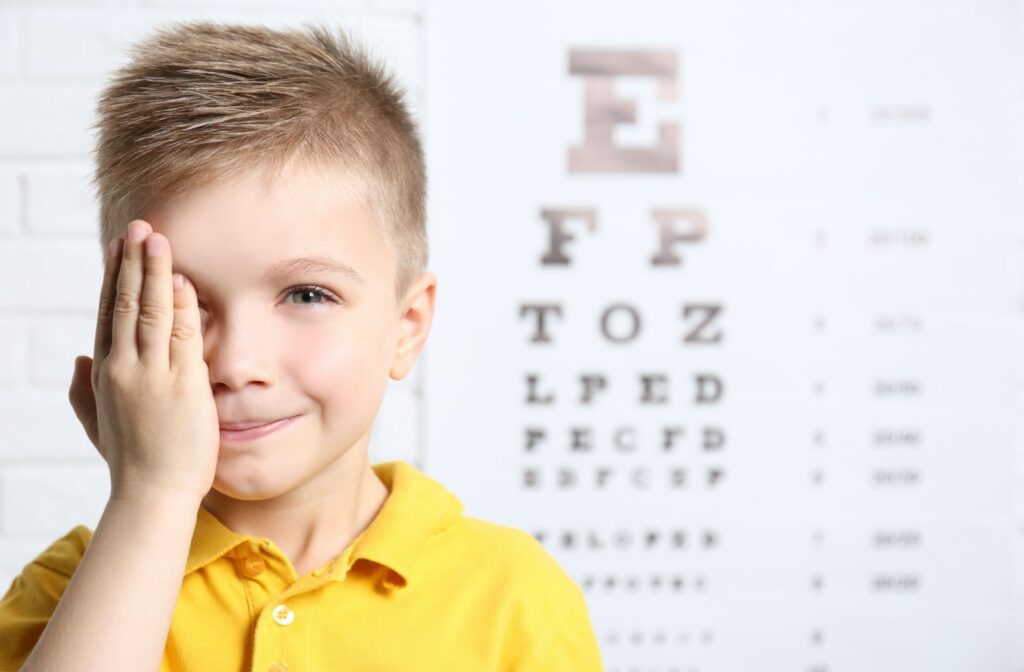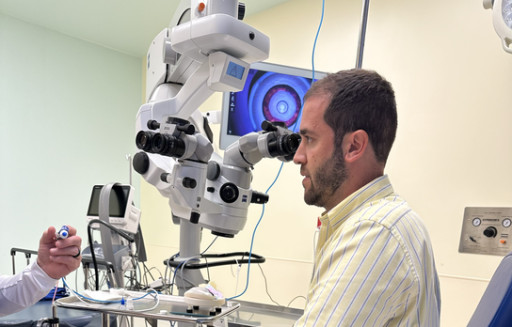All Categories
Featured
Unlocking Opportunities: Comprehensive Low Vision Rehab Alternatives.
Living with low vision can present distinct obstacles, but modern rehabilitation approaches equip individuals to adjust and grow. From innovative technology to hands-on training, there are various options made to enhance life and foster independence. Right here's a detailed consider the diverse rehab remedies readily available for those with low vision.
The Duty of Low Vision Recovery
Reduced vision recovery concentrates on assisting people enhance their remaining vision and establish skills to handle their environments. With a mix of devices, training, and personalized assistance, rehabilitation programs boost capability and boost confidence in navigating daily activities.
Key Reduced Vision Rehabilitation Options
Customized Aesthetic Aids
High-Powered Magnifiers: These tools are available in portable, wearable, or electronic layouts, allowing individuals to read, create, or view things up close.
Telescopic Glasses: Perfect for boosting range vision, these glasses help with activities such as viewing tv or analysis signs.
![]()
Filter Lenses: Tinted lenses reduce glare, improve comparison, and offer UV protection, boosting convenience and exposure.
Technological Innovations
Electronic Magnifying Instruments: Desktop and mobile devices supply adjustable magnification, making it possible for less complicated access to published products and digital web content.
![]()
Voice-Assisted Innovation: Screen viewers, voice-enabled mobile phones, and AI-driven applications assist individuals navigate the digital world extra effectively.
Wearable Vision Aids: Smart glasses equipped with cameras and acoustic responses provide real-time aid with analysis, identifying things, and spatial positioning.
Expert Training Programs
Alignment and Mobility Training: This program instructs individuals how to relocate with confidence within their communities and homes, typically integrating walking canes or guide pets.
Daily Living Skills: Specialized training outfits people with methods to perform crucial tasks such as cooking, dressing, and handling house chores.
Flexible Visual Methods: Therapists guide individuals on leveraging field of vision or scanning approaches to make up for vision loss.
Environmental Adjustments
![]()
Simple adjustments in the house or job can significantly enhance availability:
Making use of contrasting shades for much better item distinction.
Adding task lighting to enhance exposure.
Marking devices with responsive signs for simpler procedure.
Emotional and Social Support
Dealing with vision loss often involves psychological changes. Support system and therapy solutions offer a secure room to share experiences and build strength.
Peer mentoring programs connect people with similar challenges, fostering sociability and shared solutions.
Accessing Rehabilitation Providers
Low vision recovery solutions are commonly offered with:
Specialized Clinics: Eye doctors and eye doctors educated in low vision care supply customized evaluations and remedies.
Nonprofit Organizations: Teams like the American Structure for the Blind and VisionAware use resources, assistance, and recommendations.
Area Centers: Neighborhood solutions may give cost-free or low-cost training and access to assistive tools.
Final Thoughts
Reduced vision does not have to imply a diminished lifestyle. With the appropriate combination of devices, training, and assistance, individuals can reclaim self-reliance and appreciate meeting lives. By checking out the many rehabilitation choices readily available, those with reduced vision can discover techniques that work best for their distinct needs and conditions. If you or an enjoyed one faces vision obstacles, do not hesitate to reach out to a low vision professional to begin the journey toward empowerment and flexibility.
Living with low vision can present distinct obstacles, but modern rehabilitation approaches equip individuals to adjust and grow. From innovative technology to hands-on training, there are various options made to enhance life and foster independence. Right here's a detailed consider the diverse rehab remedies readily available for those with low vision.
The Duty of Low Vision Recovery
Reduced vision recovery concentrates on assisting people enhance their remaining vision and establish skills to handle their environments. With a mix of devices, training, and personalized assistance, rehabilitation programs boost capability and boost confidence in navigating daily activities.
Key Reduced Vision Rehabilitation Options
Customized Aesthetic Aids
High-Powered Magnifiers: These tools are available in portable, wearable, or electronic layouts, allowing individuals to read, create, or view things up close.
Telescopic Glasses: Perfect for boosting range vision, these glasses help with activities such as viewing tv or analysis signs.

Filter Lenses: Tinted lenses reduce glare, improve comparison, and offer UV protection, boosting convenience and exposure.
Technological Innovations
Electronic Magnifying Instruments: Desktop and mobile devices supply adjustable magnification, making it possible for less complicated access to published products and digital web content.

Voice-Assisted Innovation: Screen viewers, voice-enabled mobile phones, and AI-driven applications assist individuals navigate the digital world extra effectively.
Wearable Vision Aids: Smart glasses equipped with cameras and acoustic responses provide real-time aid with analysis, identifying things, and spatial positioning.
Expert Training Programs
Alignment and Mobility Training: This program instructs individuals how to relocate with confidence within their communities and homes, typically integrating walking canes or guide pets.
Daily Living Skills: Specialized training outfits people with methods to perform crucial tasks such as cooking, dressing, and handling house chores.
Flexible Visual Methods: Therapists guide individuals on leveraging field of vision or scanning approaches to make up for vision loss.
Environmental Adjustments

Simple adjustments in the house or job can significantly enhance availability:
Making use of contrasting shades for much better item distinction.
Adding task lighting to enhance exposure.
Marking devices with responsive signs for simpler procedure.
Emotional and Social Support
Dealing with vision loss often involves psychological changes. Support system and therapy solutions offer a secure room to share experiences and build strength.
Peer mentoring programs connect people with similar challenges, fostering sociability and shared solutions.
Accessing Rehabilitation Providers
Low vision recovery solutions are commonly offered with:
Specialized Clinics: Eye doctors and eye doctors educated in low vision care supply customized evaluations and remedies.
Nonprofit Organizations: Teams like the American Structure for the Blind and VisionAware use resources, assistance, and recommendations.
Area Centers: Neighborhood solutions may give cost-free or low-cost training and access to assistive tools.
Final Thoughts
Reduced vision does not have to imply a diminished lifestyle. With the appropriate combination of devices, training, and assistance, individuals can reclaim self-reliance and appreciate meeting lives. By checking out the many rehabilitation choices readily available, those with reduced vision can discover techniques that work best for their distinct needs and conditions. If you or an enjoyed one faces vision obstacles, do not hesitate to reach out to a low vision professional to begin the journey toward empowerment and flexibility.
Latest Posts
Red Hawk Gastropub: Your Twin Falls Dining Destination
Published Feb 01, 25
1 min read
Eye Center South
Published Feb 01, 25
0 min read
Experience Deluxe at Canyon Crest-- Book Your Event Today!
Published Feb 01, 25
3 min read